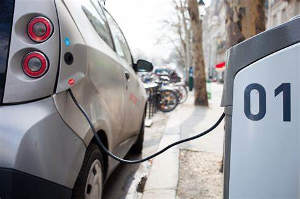EV Rapid Charging Prices Escalate

Prices for rapid charging an electric vehicle (EVs) in the UK has risen sharply in line with increasing energy costs, although, EV charging is still cheaper than buying both petrol and diesel on forecourts according to a leading motor trade organisation.
Public non-subscription rapid charging has increased by 21% over the last year, even charging at home has been more expensive as energy bills continue to surge upwards.
Fuel prices peaked as crude oil suppliers struggle to meet consumer demand, but the invasion of Ukraine is generally believed to be the main contributing factor to the increase in EV charging, gas and electricity costs,
According to Zap Map, the top three EV rapid charging companies are Instavolt, Osprey and BP Pulse. Rapid and home EV charging is still cheaper than petrol or diesel per mile, it’s nearly half the cost per mile compared to filling a family vehicle with fuel off the forecourts.
Since September 2021, the average cost of a litre of petrol has increased by 25%, whilst during May 2022, diesel prices rose to an eye watering £1.80 a litre, the cost of electricity used to power EVs does vary depending on each household tariff.
“While electric car drivers may not be immune from the rocketing price of wholesale energy – most notably gas, which in turn dictates the cost of electricity – there’s no doubt that charging an electric vehicle still represents excellent value for money compared to filling up a petrol or diesel car,” RAC fuel spokesman; Simon Williams, told the BBC recently.
Mr Williams said that “unsurprisingly” the quickest places to charge are also the most expensive with ultra-rapid chargers costing on average 14% more to use than rapid chargers.
The most affordable way of charging an electric vehicle is from your home using overnight off-peak electricity, which will be much cheaper than public charge points.
According to the motor trade industries AA, some off-peak tariffs are as low as 4.5p per kilowatt hour when charging at home, also charging from lampposts is over 45% cheaper than on-the-road rapid charging.
Any savings made can help fund other motoring expenses, like the cost of private and motor trade insurance costs.
According to Jack Cousins, head of road policy at the AA. Only 87 UK councils out of 400 have applied for an on-street residential charge point grant since 2017, he said, “This needs to dramatically improve so that EV drivers across the country have access to good, local charge points,”
Another reason home charging can be much cheaper than rapid charging is because VAT on electricity from public chargers is levied at a rate four-times higher than residential electricity.
Just as important, more electric vehicles need to be produced at a mid-price range to meet consumer demand, but EV batteries are expensive to produce, industry forecasts suggest vehicle costs are expected to start gradually coming down, so electric and internal combustion engine cars should cost roughly the same by the end of the decade.







